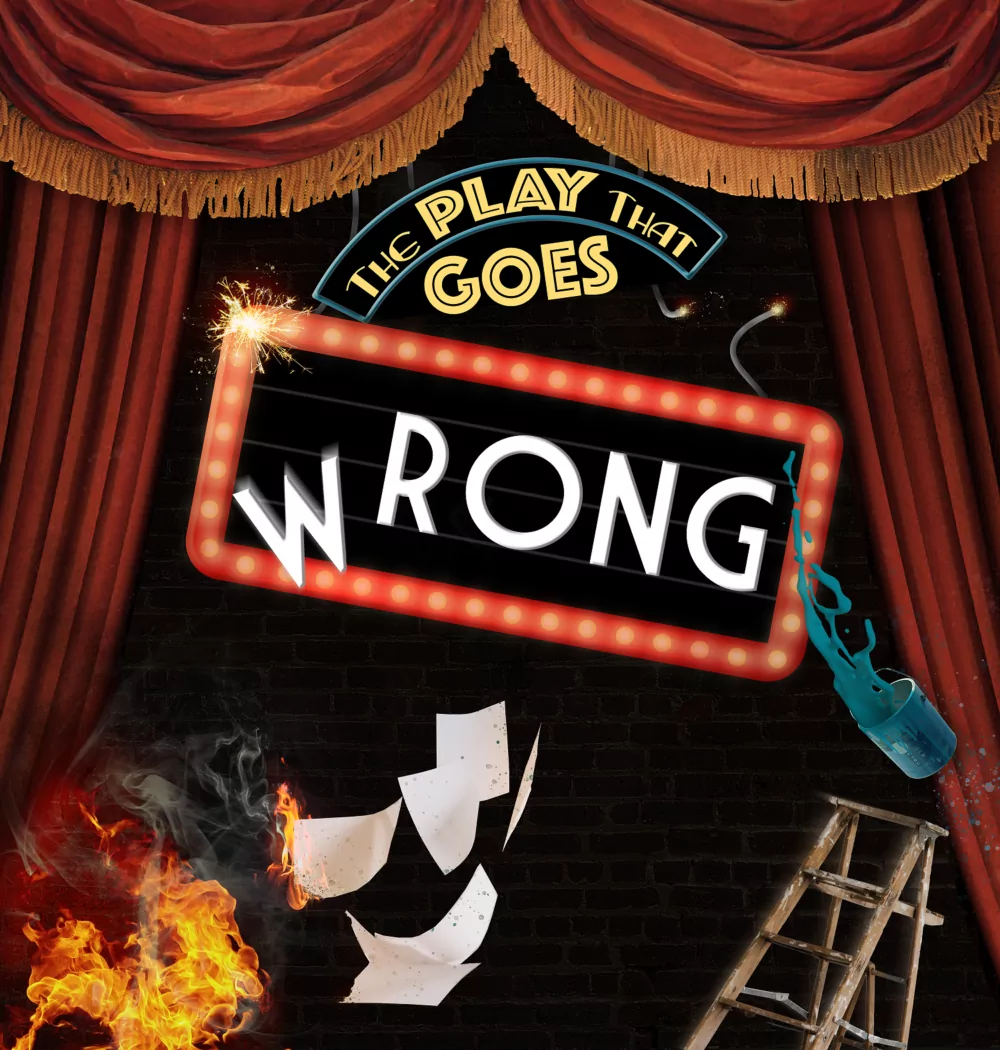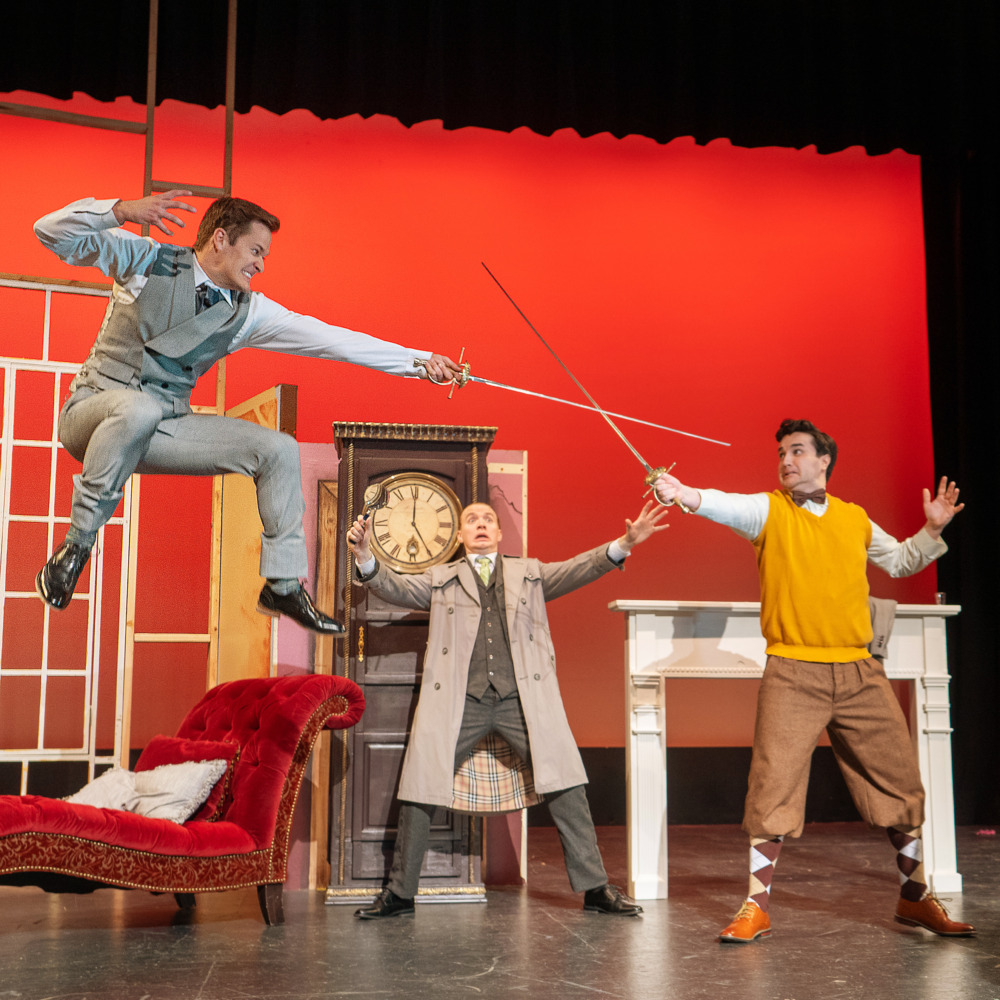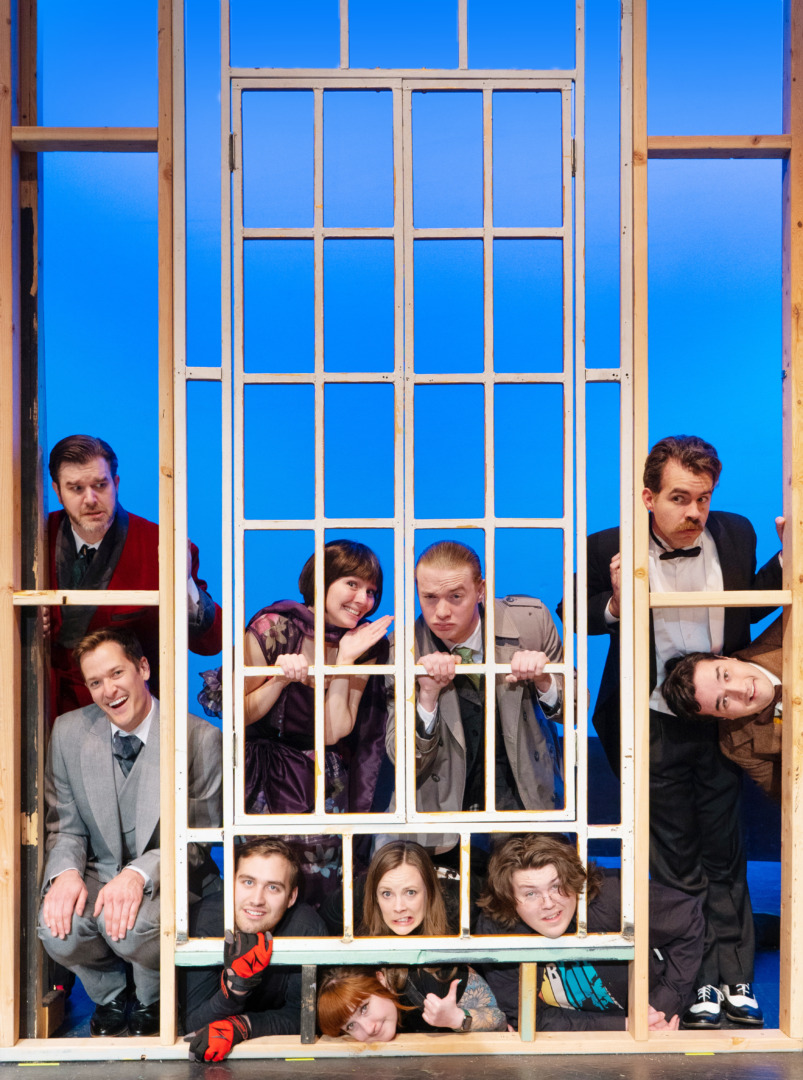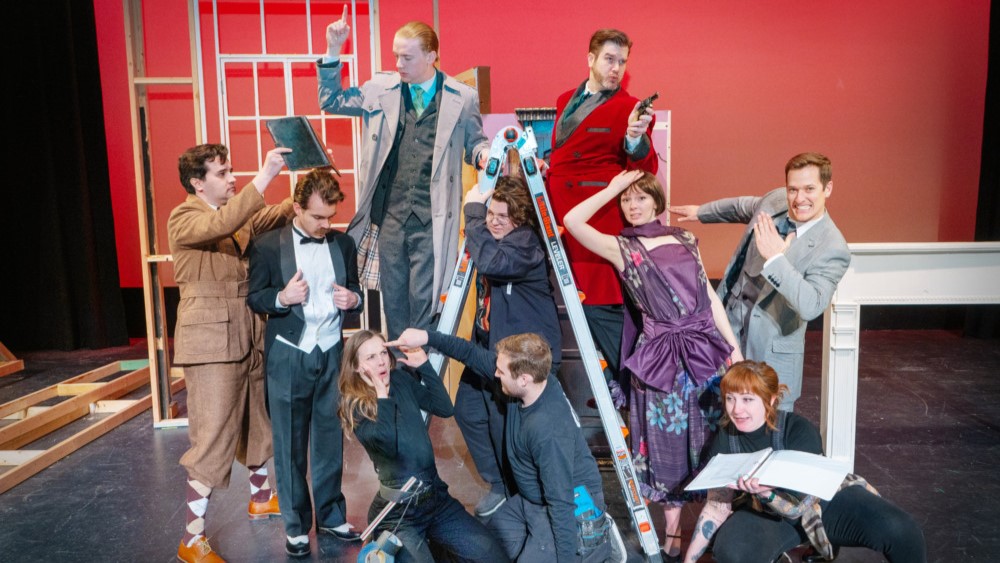OREM — Sometimes, especially during the midst of final exams, tax season, and at the end of a terrible winter, a person wants to be entertained by a show that does not make its audience think too hard. For lovers of theater who are in that category, The Play That Goes Wrong at the SCERA Center for the Arts is the perfect show. Directed by Chase Ramsey, this production provides some lighthearted entertainment that just asks its audience to relax and be entertained.

Written by Henry Lewis, Jonathan Sayer, and Henry Shields, The Play That Goes Wrong is one of the most successful British comedies to date. With numerous tours throughout the world and various prestigious awards, the play is a clever masterpiece. The plot is a play within a play being put on at the fictitious Cornley University, where everything that could possibly go wrong (as the title suggests) does indeed go wrong. This includes broken set pieces, missed lines, and wrong cues. By the end of the show, the entire set falls apart. Littered with so many mishaps that both the seasoned theater veteran and the newcomer would enjoy, The Play That Goes Wrong is a brilliant concept.
Hands down, the star of this production is the set. Designed by Zippy Hellewell and built by a skilled team, this design rightfully steals the show. Not only is it aesthetically lovely with velvety walls, two stories, and (my favorite) a gloriously detailed booth for the lighting and sound Operator littered with sticky notes, “POP!” bobbleheads and printed tech memes, but the set is designed to fall apart. Pictures and objects fall from the walls with deliciously perfect comedic timing. My compliments go to the stage manager, Danielle Berry, for such exactness in executing so many cues. Audience members will be shocked by the incredible things this production team has done with their effective and hilarious set design. Thanks to the work of the show’s technicians, The Play That Goes Wrong might be the SCERA’s most technically ambitious production, and audience members will be delighted by their work.

While all of the performers were filled with undying, admirable energy, the actors that stood out to me most were those who gave more realistic performances amidst the farce of the play. David Peterson as Jonathan/Charles Haversham had delightfully subtle actions in his performance, such as putting his hand to his forehead in such honest disappointment. Eden Bostrom as Sandra/Florence Colleymore, was wonderful when emerging in the latter half of the play with genuine fury as Sandra tries to re-assert her dominance as the star of the show. Shannon Follette as Annie, walking onstage with Sandra with believable fear and awkwardly looking at her script. Samuel Wright as Dennis/Perkins (who also had the best dialect work) sent the audience into authentic and deep uproarious laughter when he would turn upstage. His character was trying not to be funny and truthfully believed that his performance was not going as well as the others.
Ironically, for a farce, what I wanted more from the cast and Ramsey was for the whole production to stop trying to be funny. Instead, they should trust the script to do the work. Too often, when things went wrong, the actors did not react to these events like they were shocking. I found myself losing interest in the characters and plot within the first few minutes because everything that occurred felt expected and without depth. That is why the more realistic performances were the most satisfying.

The few moments of nuance and truthfulness from the actors were deeply gratifying, and I hope they will bless future audiences with more of them. The moments of truthfulness make the mishaps even funnier because an audience member imagine how embarrassing it would be for them to happen to them. Moreover, such moments intensify the juxtaposition between the moments of comedy, making them that much more hysterical. Given that I saw this production on opening night, I have hope that through their run, the cast will become more confident that they can stop trying so hard to be funny. The brilliant script by Lewis, Sayer, and Shields does that for them.
The Play That Goes Wrong at the SCERA Center for the Arts has admirable, flawless technical workmanship that will leave audiences in stitches and awe. The actors’ performances, overall, resemble that of a sitcom: not too deep and mildly entertaining. The production is easy on the brain and would be very enjoyable for children and families. Perfect for a quick laugh and some nice stress relief, The Play That Goes Wrong at the SCERA is a technical delight with an energetic cast that can afford to tone down the showiness.
[box]The Play That Goes Wrong is plays Mondays, Thursdays, Fridays, and Saturdays at 7:30 PM through May 6 at the SCERA Center for the Arts (745 South State, Orem). Tickets are $12-14. For more information, visit scera.org.[/box]

